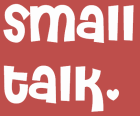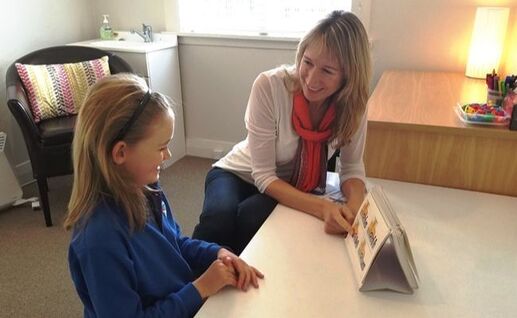Frequently asked questions
Will speech therapy affect my child's self esteem?
Struggling to communicate affects children's self-esteem. They usually sense when their talking is "different". Good quality therapy promotes good self esteem. Targets set are achievable and children typically feel pride in their achievements. Parents report increased confidence talking with others and establishing friendships.
Do I need a referral?
No. Anyone can refer a child for private speech-language therapy.
What happens in the first session?
Sessions are typically 45 minutes. Your child's initial session is likely to start with a play time so they can settle in and get familiar with the therapist whilst a case history is taken. Assessments administered during the first session may include observing and interacting with your child and formal/structured testing. Usually by the end of the first session, a diagnosis and explanation of your child's speech or language difficulty is provided and followed up with a detailed written report. More complex speech-language difficulties may require two or more assessment sessions.
We recommend giving your child a snack and drink prior to the session. They are very welcome to bring a favourite toy or book along. Our clinic has a lovely, comfortable reception area with books and toys, as well as kitchen and bathroom facilities. Please feel free to arrive a few minutes early to ensure your session can start on time.
What age is best for speech therapy?
Research shows that children experience long-term benefits from early intervention and intervention may curb potential problems before they occur. For example, developing sound awareness skills in therapy can influence literacy and attention skills at school. Difficulty talking during preschool years can lead to low confidence, isolation and anxiety at school. If in doubt, one option may be to have an assessment to better understand your child's speech and language strengths and needs and make a decision from there.
My child sees a speech-language therapist through the public system. Should we 'go private' too?
Ministry of Education, CCS and child development provide a small amount of government funded speech therapy. Parents sometimes want more intensive therapy, more flexibility around session times/location, or to trial a different therapist and/or different approaches. Accessing private speech-language therapy does not affect your entitlement to public speech-language therapy.
What does speech therapy cost?
Please ask us about funding opportunities for private speech-language therapy, available for children with a diagnosed disability.. In New Zealand, insurance does not cover speech therapy cost. Please click here to see Small Talk Therapy pricing.
How can I improve my child's speech?
Consider having your child's hearing tested, even if it appears to be fine. Read books with your child every day. These are a great way to develop their language skills in the background while their speech is still developing. They'll learn great speech and language just interacting with you - Much moreso than they would from watching a TV program. Model short phrases repetitively during every day routines. For example, during bath time, you can name the toys in the tub, name the actions you see (splash, wash, kick) and comment on the ongoing activity with simple words such as up, down, hot, cold, and use routine language to create expectations by, for example, saying “ready, set, out” when the bath is over. Respond to any attempts your child makes to communicate, whether by pointing, making sounds or shifting gaze between you and objects s/he wants. Show interest and repeat back what your child says in a natural way.
Struggling to communicate affects children's self-esteem. They usually sense when their talking is "different". Good quality therapy promotes good self esteem. Targets set are achievable and children typically feel pride in their achievements. Parents report increased confidence talking with others and establishing friendships.
Do I need a referral?
No. Anyone can refer a child for private speech-language therapy.
What happens in the first session?
Sessions are typically 45 minutes. Your child's initial session is likely to start with a play time so they can settle in and get familiar with the therapist whilst a case history is taken. Assessments administered during the first session may include observing and interacting with your child and formal/structured testing. Usually by the end of the first session, a diagnosis and explanation of your child's speech or language difficulty is provided and followed up with a detailed written report. More complex speech-language difficulties may require two or more assessment sessions.
We recommend giving your child a snack and drink prior to the session. They are very welcome to bring a favourite toy or book along. Our clinic has a lovely, comfortable reception area with books and toys, as well as kitchen and bathroom facilities. Please feel free to arrive a few minutes early to ensure your session can start on time.
What age is best for speech therapy?
Research shows that children experience long-term benefits from early intervention and intervention may curb potential problems before they occur. For example, developing sound awareness skills in therapy can influence literacy and attention skills at school. Difficulty talking during preschool years can lead to low confidence, isolation and anxiety at school. If in doubt, one option may be to have an assessment to better understand your child's speech and language strengths and needs and make a decision from there.
My child sees a speech-language therapist through the public system. Should we 'go private' too?
Ministry of Education, CCS and child development provide a small amount of government funded speech therapy. Parents sometimes want more intensive therapy, more flexibility around session times/location, or to trial a different therapist and/or different approaches. Accessing private speech-language therapy does not affect your entitlement to public speech-language therapy.
What does speech therapy cost?
Please ask us about funding opportunities for private speech-language therapy, available for children with a diagnosed disability.. In New Zealand, insurance does not cover speech therapy cost. Please click here to see Small Talk Therapy pricing.
How can I improve my child's speech?
Consider having your child's hearing tested, even if it appears to be fine. Read books with your child every day. These are a great way to develop their language skills in the background while their speech is still developing. They'll learn great speech and language just interacting with you - Much moreso than they would from watching a TV program. Model short phrases repetitively during every day routines. For example, during bath time, you can name the toys in the tub, name the actions you see (splash, wash, kick) and comment on the ongoing activity with simple words such as up, down, hot, cold, and use routine language to create expectations by, for example, saying “ready, set, out” when the bath is over. Respond to any attempts your child makes to communicate, whether by pointing, making sounds or shifting gaze between you and objects s/he wants. Show interest and repeat back what your child says in a natural way.

